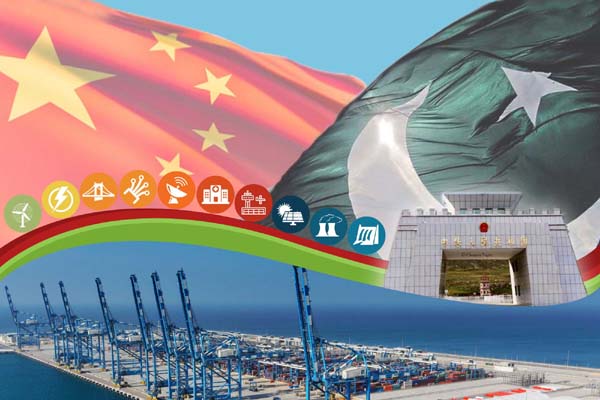ISLAMABAD: While there are confusion over the authority and the powers of China Pakistan Economic Corridor Authority (CPECA), the officials of the Ministry of Planning and Development claim that the newly established body will not implement or execute any of the CPEC projects, rather it is mandated to identify new projects and coordinate with stakeholders and different provinces.
According to the ministry’s officials, the Ministry of Planning and Development, Planning Commission and other concerned authorities would look after the formalities and the execution of CPEC and non-CPEC projects.
The authority, now being headed by a former military man Lieutenant General (Retired) Asim Saleem Bajwa, was constituted keeping in view the long term goals and expansion of the corridor even after 2030, said the ministry officials while briefing the National Assembly’s Standing Committee on Planning Development and Reform held here on Tuesday with Member National Assembly (MNA) Junaid Akbar, in the chair.
During the meeting, the Committee considered “The China Pakistan Economic Corridor Authority (Ordinance No.XII of 2019) Ordinance, 2019 (Government Bill) and recommended it for further legislation by the National Assembly.
After the establishment through an ordinance to showcase the government’s seriousness regarding CPEC to the Chinese, the government has now placed the CPECA Ordinance before the National Assembly.
The authority has created a separate secretariat while transferring all related staff and department to the new secretariat. The appointment of other high officials of the CPECA was also on cards during the meeting.
According to experts, there were instances of overlapping of powers when the ordinance of the new authority is compared with existing bodies and their assigned tasks under the new rule.
Functions of the planning commission, which is “the apex planning and coordination body under the chairmanship of the prime minister”, were also overlapping with the broad functions enlisted for the CPECA. For instance, one of CPECA’s functions is “to ensure inter-provincial and inter-ministerial coordination for CPEC related activities”. The planning commission, on the other hand, is also tasked to do coordination of economic policies.
During the meeting of the parliamentary body, the members also demanded that private members and representatives of the chamber of commerce and business community should also be included in the CPECA.
The committee discussed that transfer of technology may be kept on priority while making any agreement with China or other countries. It was also discussed that almost thirty thousand Pakistani students are currently studying in China in different disciplines; the committee recommended that the government of China may be approached to build universities in Pakistan as it will save foreign exchange and will increase Pakistan’s education capacity.
During the meeting, the Ministry of Planning, Development and Special Initiatives secretary briefed about the implementation of the recommendations of the committee. The project director for Dasu Hydropower also submitted the project’s progress report to the committee as required by the committee during their last meeting.
The committee also directed to share the progress of the project regularly, on a monthly basis.
The chief executive of the Neelum Jhelum Power Project informed that as per the decision of the Economic Coordination Committee (ECC) of the cabinet, Neelum Jhelum surcharge will be rescinded at the achievement of commercial operation date of the whole project.
He further informed that the Central Power Purchasing Agency Guarantee Limited (CPPAG) has approved to raise the invoice for the energy supplied to the grid through WAPDA. The committee recommended that WAPDA should build and run the hospitals, schools and provide roads and other necessities to the affectees of Dasu Dam
Millennium Development Goals (MDGs), Sustainable Development Goals (SDGs) and Sustainable Development Achievement Programme (SAP) were also discussed during the meeting. The committee recommended that balanced development may be ensured throughout Pakistan, especially in backward and rural areas. The committee also desired to transfer task relating to MDGs, SDGs and SAP from the Cabinet Division to the Ministry of Planning, Development and Special Initiatives.
























